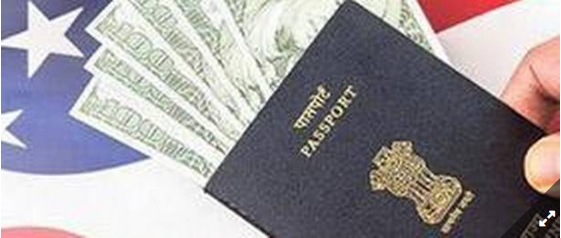The economic reasons are compelling and companies are answerable to shareholders
US President Donald Trump’s move to place restrictions on skilled immigrants could result in more work shifting to ‘captives’ of multinationals in India.
A research paper put out by the National Bureau of Economic Research, authored by Britta Glennon from the Wharton School, University of Pennsylvania, has said such restrictive migration policies are unlikely to increase employment and earnings of high-skilled natives, but rather have the effect of offshoring high-skilled jobs to other countries.
The research is based on data from 2004 onwards, from several US departments and annual surveys on US Direct Investment Abroad.
In the midst of all this, India stands to benefit as there are many S&P 500 captive companies present here. There are about 1,100 captives employing 8 lakh people and generating approximately $23 billion in revenue, according to Bain & Company.
Also Read: Ration card not being produced and no one is ready to listen? Complain here
The economic reasons are compelling and companies are answerable to shareholders. “By offshoring, if the cost of doing business is available at a third of that in the US, without compromising on quality, it presents a very compelling business proposition that creates shareholder value,” said Rajiv Ahuja, President at NYSE-listed Startek.
US’ ‘techie’ shortage
From a talent supply perspective too, the US, with its STEM graduates programme, doesn’t have the numbers that India has and this has been brought to the US government’s attention many times by Indian and American industry bodies. “There is a shortage of qualified tech people and many requirements do not get filled because legal immigration has become so difficult. What ends up happening is that the job moves to India, Canada or Europe,” said Prashanthi Reddy, an immigration lawyer.
Industry body Nasscom is of the view that USCIS and other government offices being closed due to the pandemic has delayed the processing of visas and made it difficult to travel to or from the US, and is preventing companies from accessing talent.
Another negative effect could be with regard to a slowdown of the world’s largest economy. “If costs go up, then it has a ripple effect on the US economy, making goods and services costlier and rendering them non-competitive, both in the domestic, as well as in global markets,” said Ahuja.
Glennon, in her study, also pointed out that the effect can be strongest among R&D-intensive firms in industries where services could more easily be offshored. The effect was somewhat geographically concentrated: foreign affiliate employment increased both in countries like India and China with large quantities of high-skilled human capital and in countries like Canada with more relaxed high-skilled immigration policies and closer geographic proximity, the research stated.
US multinational firms are responsible for 80 per cent of US R&D spends and employ about 25 per cent of private sector employees. Policy debates surrounding immigration have largely overlooked the fact that multinationals faced with decreased access to visas have an offshoring option, the research noted.
The thought itself is not new but assumes significance considering the depressed global economic scenario as a result of the pandemic and the US elections next November.


